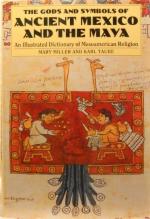|
This section contains 8,272 words (approx. 28 pages at 300 words per page) |

|
The Classic period in the Valley of Mexico and its environs (150 BCE–750 CE) was one of florescence and of great achievement and intellectual advancement in the fields of art, government, and ideology. These centuries saw urbanism defined. Intense trade developed along established routes, diffusing ideas and material goods from one corner of Mesoamerica to another and consolidating religious thought and ceremonial.
Data for Classic period religion is based on archaeology; while no written documents from that period have come down to us, we can rightly regard mural painting, architecture, and other works of art as valid documents. Sixteenth-century chronicles describing Aztec religious belief and custom—about eight centuries after the decline of Teotihuacan—nevertheless can help us interpret earlier cultures, if used with caution. Ethnographic evidence can also shed light on ancient cultures, since in many cases there seems to be a continuity of tradition. It...
|
This section contains 8,272 words (approx. 28 pages at 300 words per page) |

|




